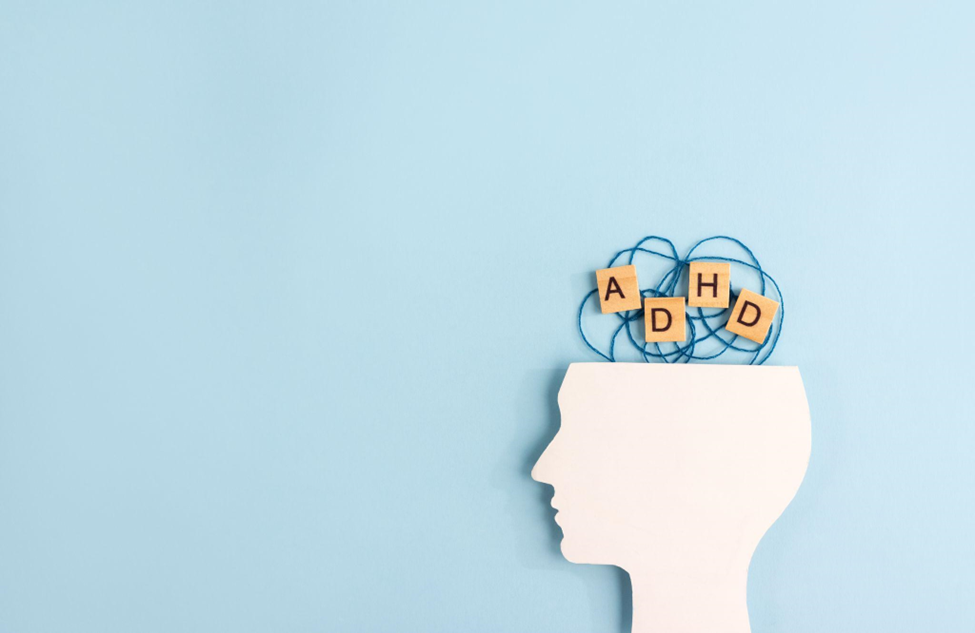
Navigating Adult ADHD: Symptoms, Diagnosis, and Treatments
If you’re an adult who has experienced persistent or lifelong trouble with concentration, organization, or impulsivity, you might be wondering whether you could have ADHD (attention-deficit/hyperactivity disorder).
It’s well known that many children struggle with ADHD. But adults also experience it. Approximately 10 million adults in the US have attention-deficit/hyperactivity disorder. This figure represents around 4% of adults aged 18 or older.
ADHD can negatively impact work and school performance and relationships. Maybe someone close to you has commented about your inattention or hyperactivity, or you’re struggling at work but aren’t sure why.
There are effective treatments to manage ADHD symptoms. Learn about ADHD characteristics in adults, the process of diagnosing ADHD in adults, and when to see a mental health specialist, or a primary care physician at Crystal Run Healthcare.
What is ADHD?
ADHD, or attention-deficit/hyperactivity disorder, is a neurodevelopmental condition associated with an ongoing pattern of inattention, impulsivity or hyperactivity. Adults with ADHD may have difficulty with organization, time management, and social relationships.
ADHD begins in childhood. For some people, the symptoms persist into their teen years and adulthood. Because adult ADHD symptoms often look different than in kids, many adults don’t realize they have ADHD.
Current research suggests that there are brain differences between people who don’t have ADHD and those who have the disorder. These changes may be lifelong.
It’s important to get a proper diagnosis so your healthcare provider can come up with a treatment plan that works for you. This may involve a combination of therapy, medication and lifestyle adjustments.
What are the symptoms of ADHD?

There are three presentations of ADHD: predominantly inattentive, hyperactive-impulsive or a combination of the two.
Signs of inattention may include challenges with:
- Paying attention to details
- Sustaining attention for long periods of time
- Listening closely
- Maintaining a consistent hygiene schedule
- Following through with instructions
- Staying organized
- Being easily distracted
- Remembering where things are
- Losing or misplacing items
Signs of hyperactivity or impulsivity can include:
- Fidgeting or squirming while seated
- Having a hard time staying still
- Difficulty staying engaged in quiet activity
- Talking excessively
- Interrupting or intruding on others
- Blurting out answers
- Becoming irritated when being expected to wait
Some people may have trouble with inattention, while others may have mostly symptoms of hyperactivity or impulsivity. Some people have symptoms of both.
How does ADHD affect relationships and work?
No two people with adult ADHD are exactly alike. Some people can function fairly well at work and in relationships, while others struggle more. Some people with ADHD seek out stimulation, while others avoid it. Some are highly social, while others are socially withdrawn.
At work, ADHD symptoms can make it hard to stay focused and complete written or computer-based assignments on time. Adults with ADHD may impulsively speak out of turn in meetings or make hasty decisions without considering all options. Hyperactivity can make it hard to sit still for extended periods or stay on task. Hyperactivity can even cause someone to get irritated waiting for someone else to ‘finish up’ a normal task, like eating a meal or giving directions.
In social relationships, ADHD symptoms can make it hard to fully engage in conversations or remember important details others have shared. This can lead to misunderstandings or hurt feelings. A person with ADHD may impulsively say or do things without fully considering the consequences, while hyperactivity can make it challenging to relax.
ADHD can also affect how well a person can manage their personal life. A person with ADHD may struggle to keep their house clean, forget about personal hygiene like regular showers or brushing their teeth or remember to pay their bills on time. Someone with ADHD may not remember to refill medication, make their doctor’s appointments or return important phone calls.
People with severe ADHD symptoms may also struggle with other mental disorders, such as anxiety, eating disorders or substance use disorders.
How is ADHD diagnosed in adults?
No single test can diagnose ADHD. It’s important to find a mental health professional or physician who is experienced at diagnosing and treating people with ADHD. An adult ADHD doctor will have knowledge about the different ways ADHD can appear in adults versus how a child with ADHD shows symptoms.
Your provider may ask questions about your health history and about your childhood experiences and behavior. This can provide clues as to when ADHD symptoms may have first appeared. With your permission, the provider may ask to talk with your parents or other caregivers to see if you had any symptoms during childhood.
Your doctor may also recommend certain psychological tests and ask whether you struggle with other issues, such as anxiety or substance abuse. This information can help them create a treatment plan that fully meets your needs.
How is ADHD treated?
How to treat adult ADHD will depend on which symptoms you experience, the severity of those symptoms, and how they are impacting your life. In general, ADHD treatment may include:
Medications
Stimulants are the most common medications used to treat ADHD. These drugs are very effective, improving symptoms in more than two-thirds of adults with ADHD.
Certain non-stimulant drugs may also help improve focus and reduce impulsive behavior in some adults with ADHD.
If you have other mental disorders, such as anxiety or depression, your healthcare provider may also recommend an antidepressant or anti-anxiety medication.
Behavioral Therapies
Counseling by a licensed therapist who uses evidence-based therapies, such as cognitive behavioral therapy, is helpful for some adults with ADHD.
Relaxation and stress management techniques can help you manage feelings of overwhelm. Life coaching can help with goal setting and organization, while ADHD support groups provide a forum to meet with like-minded people and may help relieve feelings of loneliness and isolation.
Lifestyle Adjustments
Brain-friendly nutrition with vitamins and minerals known to support brain health may help reduce ADHD symptoms.
Adjusting your schedule to ensure you can get enough sleep, exercising regularly, and practicing good stress management are all ways to manage ADHD symptoms.
Your healthcare provider will work with you to create a plan that’s most helpful for you.
Treatment for Adult ADHD at Crystal Run Healthcare

Crystal Run’s expert behavioral health team is made up of board-certified psychiatrists in adult psychiatry as well as psychologists and licensed clinical social workers. Additionally, our Primary Care Providers are able to help diagnose and treat individuals with ADHD and make referrals to specialists when needed.
We take a multi-disciplinary, integrated approach to mental health and wellness, coordinating your care with primary care doctors, specialists, and therapists. Our goal is to create effective treatment programs that help our patients manage their ADHD symptoms and live well.
We’re dedicated to providing patients with the most comprehensive mental health treatment available. Learn more about our providers [FE1] and schedule an appointment with a member of our primary care team by calling (845) 703-6999.
Sources:
- https://chadd.org/for-adults/overview/
- https://chadd.org/for-adults/diagnosis-of-adhd-in-adults/
- https://chadd.org/for-adults/treatment/
- https://www.nimh.nih.gov/health/publications/adhd-what-you-need-to-know
- https://www.ncbi.nlm.nih.gov/pmc/articles/PMC3666055/
- https://chadd.org/adhd-weekly/grow-out-of-adhd-not-likely/

 Optum Radiology at Crystal Run Healthcare
Optum Radiology at Crystal Run Healthcare Same and next-day pediatric appointments
Same and next-day pediatric appointments